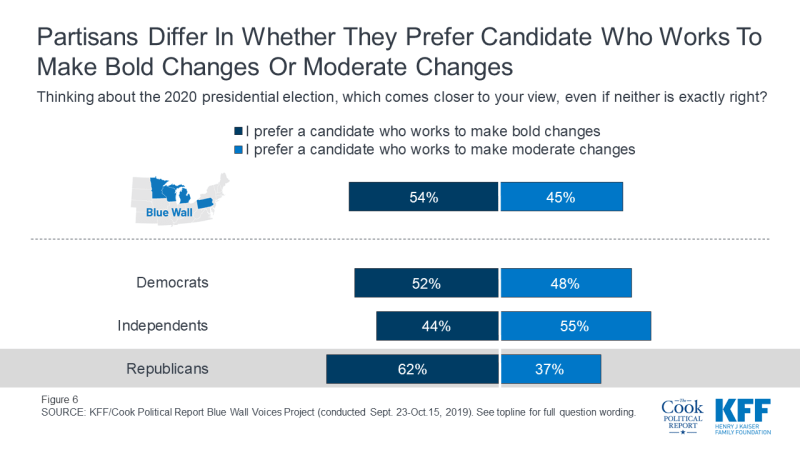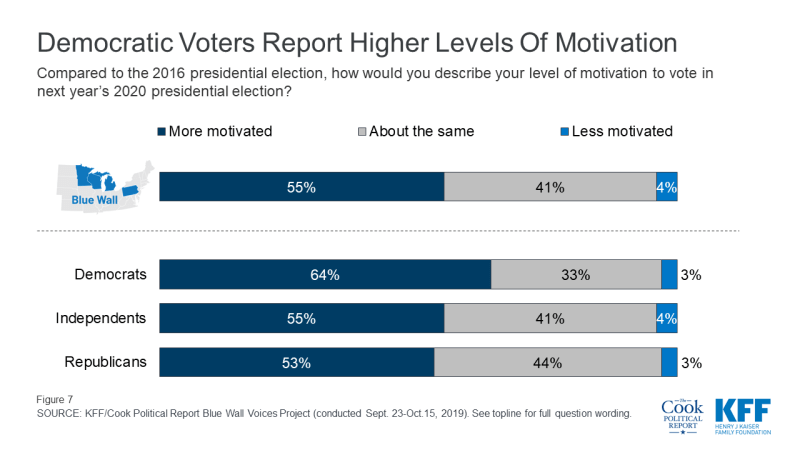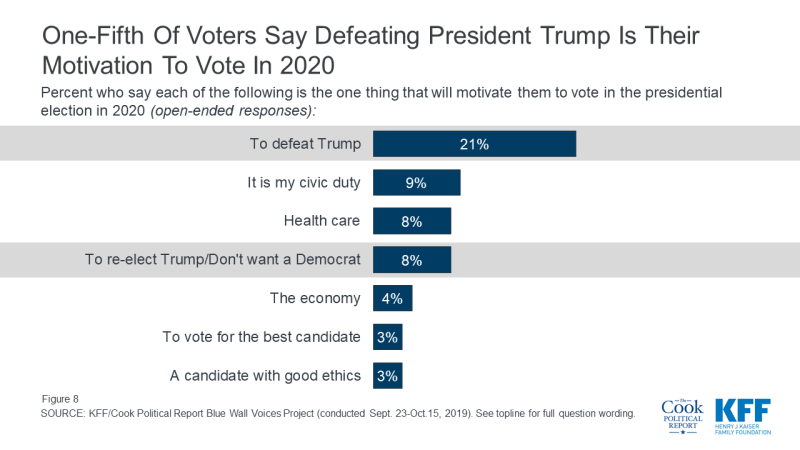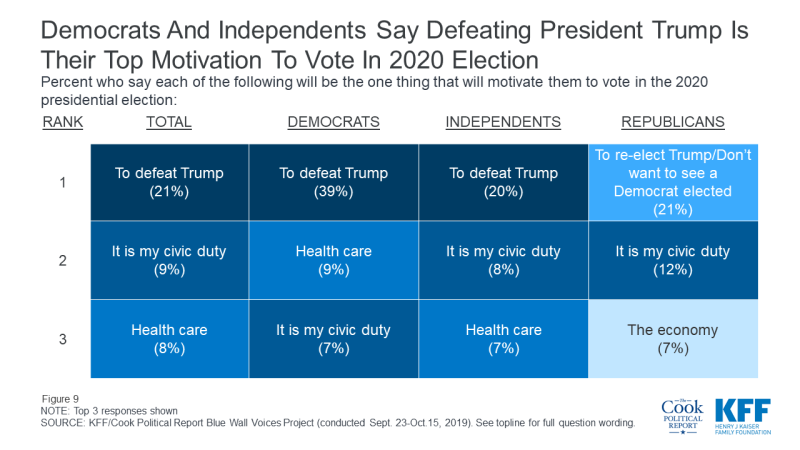Blue Wall Voices Project
What Is Driving Voters?
During the 2016 election, President Trump ran as an unconventional candidate who was going to work to implement bold changes in this country and deliver a shock to business as usual in Washington, D.C. One year out from the 2020 election, a slightly larger share of voters – including a majority of Republican voters – still prefer to vote for a candidate who wants to make bold changes rather than moderate changes. A slightly larger share of voters in Michigan, Minnesota, Pennsylvania, and Wisconsin say they prefer to vote for a candidate in 2020 who wants to make bold changes (54%) rather than a candidate who works to make moderate changes (45%).
Six in ten Republican voters (62%) say they prefer a candidate who works to make bold changes rather than a candidate who works to make moderate changes (37%). Democratic voters are more divided on their preference with half (52%) preferring a candidate who works to make bold changes and a similar share preferring a candidate who works to make moderate changes (48%). A majority of independent voters (55%) prefer a candidate who works to make moderate changes.

Figure 6: Partisans Differ In Whether They Prefer Candidate Who Works To Make Bold Changes Or Moderate Changes
Democratic voters appear to have the edge in motivation one year out from the 2020 general election with a larger share of Democratic voters (64%) saying they are “more motivated” about voting in next year’s presidential election than either independent voters (55%) and Republican voters (53%).
About two-thirds of Democratic voters in Pennsylvania (66%) and Michigan (65%) and six in ten Democratic voters in Wisconsin (62%) say they are “more motivated” to vote in next year’s election. This is compared to less than half of Republican voters in Wisconsin (46%) and slightly more than half of Republican voters in Pennsylvania (54%) Michigan (53%) who say they are more motivated to vote than in the previous presidential election. Partisan voters in Minnesota are both “more motivated” to vote in next year’s election. To see more on this, check out the individual state reports.
| Table 1: The Democratic Party has the Enthusiasm Edge in Michigan, Pennsylvania, and Wisconsin | ||||
| Percent who say they are more motivated to vote in next year’s election than in the 2016 election: | Michigan | Minnesota | Pennsylvania | Wisconsin |
| Total | 55% | 52% | 58% | 51% |
| Democratic voters | 65 | 57 | 66 | 62 |
| Independent voters | 61 | 47 | 54 | 50 |
| Republican voters | 53 | 59 | 54 | 46 |
When asked to offer in their own words what one thing will motivate them to vote in the 2020 presidential election, one-fifth of all Blue Wall voters offer responses related to defeating President Trump (21%). This is followed by those who say voting is their civic duty (9%), health care (8%), re-electing President Trump or not wanting to elect a Democrat (8%), and the economy (4%) is their top motivation. Overall, one-fourth (23%) of voters offer issues such as health care, the economy, and immigration, as their motivation for voting in the 2020 presidential election.
Defeating President Trump is offered as the top motivation to vote in 2020 by four in ten Democratic voters (39%) and one-fifth of independent voters, while responses related to re-electing President Trump or not wanting to elect a Democrat was offered by 21% of Republican voters – followed by those who say that their civic duty is their top motivation to vote in 2020 (12%).



